She’s got medical degrees from Yale and Stanford. She’s on the board of directors of the California Society of Dermatology and Dermatologic Surgery. She’s a clinical professor at the University of California, San Francisco. But most important, she’s a good sport when it comes to inspecting the scars of party guests she’s just met.
Meet renowned San Francisco dermatologist Jacqueline Dolev, owner of Dolev Dermatology in the prestigious Pacific Heights neighborhood of San Francisco. One might expect a woman with such an impressive dossier and upscale address to be a tad uppity. But Dr. Dolev is as charismatic and down-to-earth as they come, with a complexion as bright as her intellect (no surprise there). She’s also as funny as hell. Here, she addresses our concerns about everything from snake oil to self skin checks, and even lets us in on a little secret about what not to do after hopping onto the examination table.
RT: What’s the craziest thing about your profession?
JD: Sometimes I’ll be at a party and someone who finds out I’m a dermatologist will say, “Can you take a look at this?” and drop their pants or pull up their shirt in the middle of the room. Needless to say, a party is not the ideal setting for a check-up, so the quality of care goes down dramatically [laughs]. It’s funny, but it happens. And I’m happy to take a quick look if it’s an easy problem, but it’s sort of like if you meet an attorney at a party, and then pull a settlement out of your purse and ask her to read it.
RT: What do you want more women to know about skincare?
JD: First, they should know there’s a lot of snake oil out there. I think a lot of women are tempted—and I’m the same way—to think that if a product is more expensive it’s somehow better. But that’s not necessarily true. Instead of seeking out the most luxurious brands, you want to find quality ingredients, and the fact is you can find them in some drug store brands. My advice is not to be influenced by the packaging. Turn the bottle around and look for the zinc sunscreen, look for those hydrating ceramides. Another thing I hear all the time from patients is, “I drink a lot of water, so I shouldn’t be dry.” This is the number one misconception about skincare. Internal consumption of water doesn’t affect the skin too much—the hydration needs to go from the outside in, so a good moisturizer is [imperative]. And finally, I wish more women understood that sunscreen is their biggest anti-aging weapon, and that titanium oxide and zinc oxide work better than chemical sunscreen. People think we don’t get a lot of sun exposure here in San Francisco, but UVA rays can penetrate glass. I can tell if a patient does a lot of driving, because she’ll have more sun damage on the left side of her face.
RT: You’re naturally beautiful—but do you ever feel pressure to look good on the job?
JD: I definitely want to look like myself, but at the same time represent what healthy youthful skin looks like. For both my patients and myself, I strive for a balance between looking youthful and looking natural. I have patients who ask me to remove every bump on their skin, but that’s not what we’re supposed to look like. It looks natural to have some freckles or a few moles, and it looks better to have a mole than a scar where the mole was removed. I also strive for natural results when dealing with injectables like fillers. The biggest compliment I get from patients after a procedure is when they tell me that their friend wanted to know if they’d been on vacation, or that their husband noticed how rested they look. That’s why we call it rejuvenation.
RT: So what should we be doing religiously?
JD: You should, first and foremost, incorporate a daily sunscreen into your regimen. And absolutely do a self-exam every year—the guideline is to check your birthday suit on your birthday. Another thing is to avoid harsh abrasives like wash towels or scrubs. For gentle exfoliation and brightness, I prefer glycolic acid or low-dose Retin-A. Now that it’s warmer outside, I’m getting my patients ready for summer with IPL (intense pulsed light) treatments, a type of photofacial that evens out your complexion, corrects brown spots and pulls the weeds, so to speak. This is something you should do before the summer, because you’re sun-sensitive for about a week afterward and you can’t do the procedure while you’re tan.
RT: What’s the funniest thing that’s ever happened during an exam?
JD: [Laughs] This is actually something that happens a lot. As soon as I start to do a skin check, a woman immediately tells me, “I’m sorry, Dr. Dolev, but I didn’t shave my legs today.” Which, of course, is ridiculous, because I don’t care whether or not she’s shaved. It’s interesting because my male patients never say anything like that. So my advice to the ladies would be: Don’t be self-conscious. Be confident.

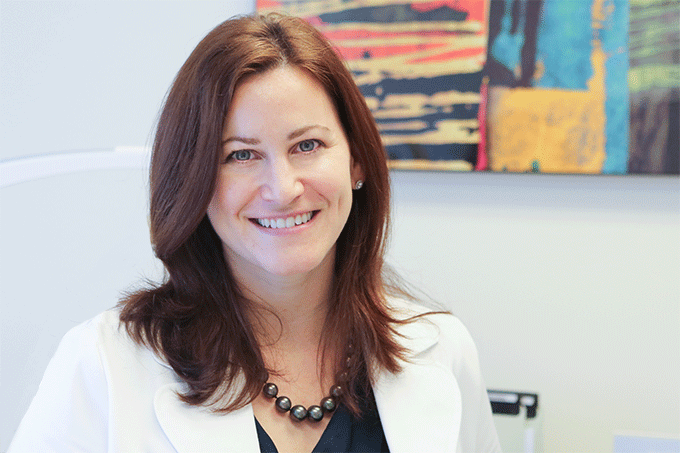
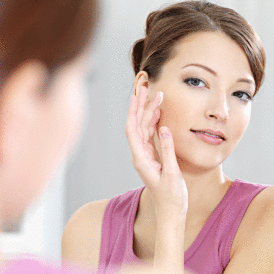

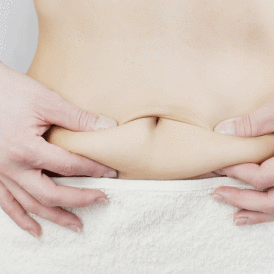
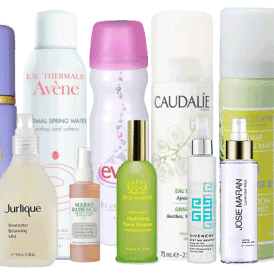
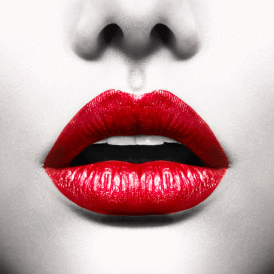
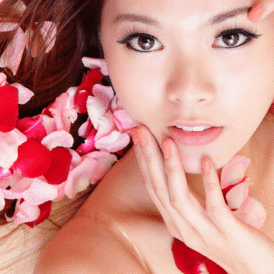


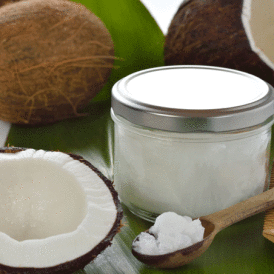
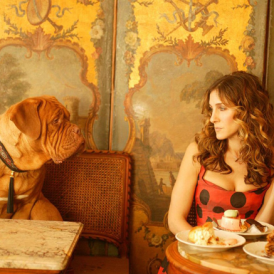
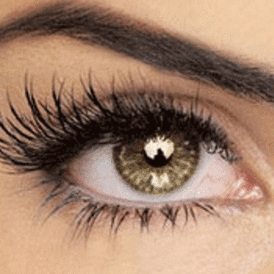








2 Responses